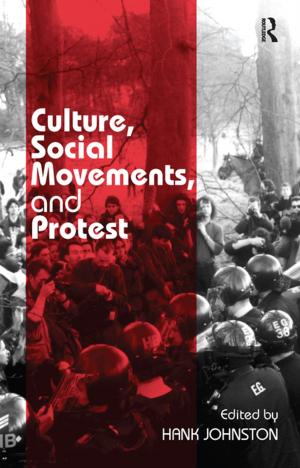| Author: | ISBN: | 9781317011675 | |
| Publisher: | Taylor and Francis | Publication: | March 3, 2016 |
| Imprint: | Routledge | Language: | English |
| Author: | |
| ISBN: | 9781317011675 |
| Publisher: | Taylor and Francis |
| Publication: | March 3, 2016 |
| Imprint: | Routledge |
| Language: | English |
Less than a year after the assassination of President Kennedy brought Lyndon B. Johnson to the White House, Harold Wilson became British Prime Minister. Over the next four years, the two men governed their countries through unprecedented crises, both domestic and international. To provide a better understanding of the transatlantic relationship, this volume provides for the first time all the correspondence between Wilson and Johnson from the time Wilson became Prime Minister in October 1964 until Johnson stepped down as President in January 1969. This period witnessed Britain’s accelerated ’retreat from Empire’ and the United States’ correspondingly active role in confronting communist influence across the globe. The letters between Wilson and Johnson reveal the difficulties they faced during this period of transition. In particular, the issue of the Vietnam War looms large, as Wilson’s refusal to commit British forces, and his sponsorship of peace initiatives, served to place severe strain on relations between the two men. Other significant topics which re-occur in the correspondence include American attempts to stiffen Britain’s resolve to preserve the value of the pound, the almost continual British defence reviews, the future of the British Army on the Rhine, the French withdrawal from NATO, the 1967 Arab-Israeli War, East-West relations, Britain’s relations with the EEC, the Prague Spring, and the devaluation of sterling. Drawing on material from the Johnson Presidential Library, Wilson’s private papers at the Bodleian Library, and the National Archives of both the United States and the United Kingdom, this collection provides a direct insight into Anglo-American relations at a pivotal moment. For whilst the United States was undoubtedly a superpower on the rise and Britain a declining influence on the world stage, the letters reveal that Johnson was eager for international allies to demonstrate to the American people that the US did not stan
Less than a year after the assassination of President Kennedy brought Lyndon B. Johnson to the White House, Harold Wilson became British Prime Minister. Over the next four years, the two men governed their countries through unprecedented crises, both domestic and international. To provide a better understanding of the transatlantic relationship, this volume provides for the first time all the correspondence between Wilson and Johnson from the time Wilson became Prime Minister in October 1964 until Johnson stepped down as President in January 1969. This period witnessed Britain’s accelerated ’retreat from Empire’ and the United States’ correspondingly active role in confronting communist influence across the globe. The letters between Wilson and Johnson reveal the difficulties they faced during this period of transition. In particular, the issue of the Vietnam War looms large, as Wilson’s refusal to commit British forces, and his sponsorship of peace initiatives, served to place severe strain on relations between the two men. Other significant topics which re-occur in the correspondence include American attempts to stiffen Britain’s resolve to preserve the value of the pound, the almost continual British defence reviews, the future of the British Army on the Rhine, the French withdrawal from NATO, the 1967 Arab-Israeli War, East-West relations, Britain’s relations with the EEC, the Prague Spring, and the devaluation of sterling. Drawing on material from the Johnson Presidential Library, Wilson’s private papers at the Bodleian Library, and the National Archives of both the United States and the United Kingdom, this collection provides a direct insight into Anglo-American relations at a pivotal moment. For whilst the United States was undoubtedly a superpower on the rise and Britain a declining influence on the world stage, the letters reveal that Johnson was eager for international allies to demonstrate to the American people that the US did not stan















